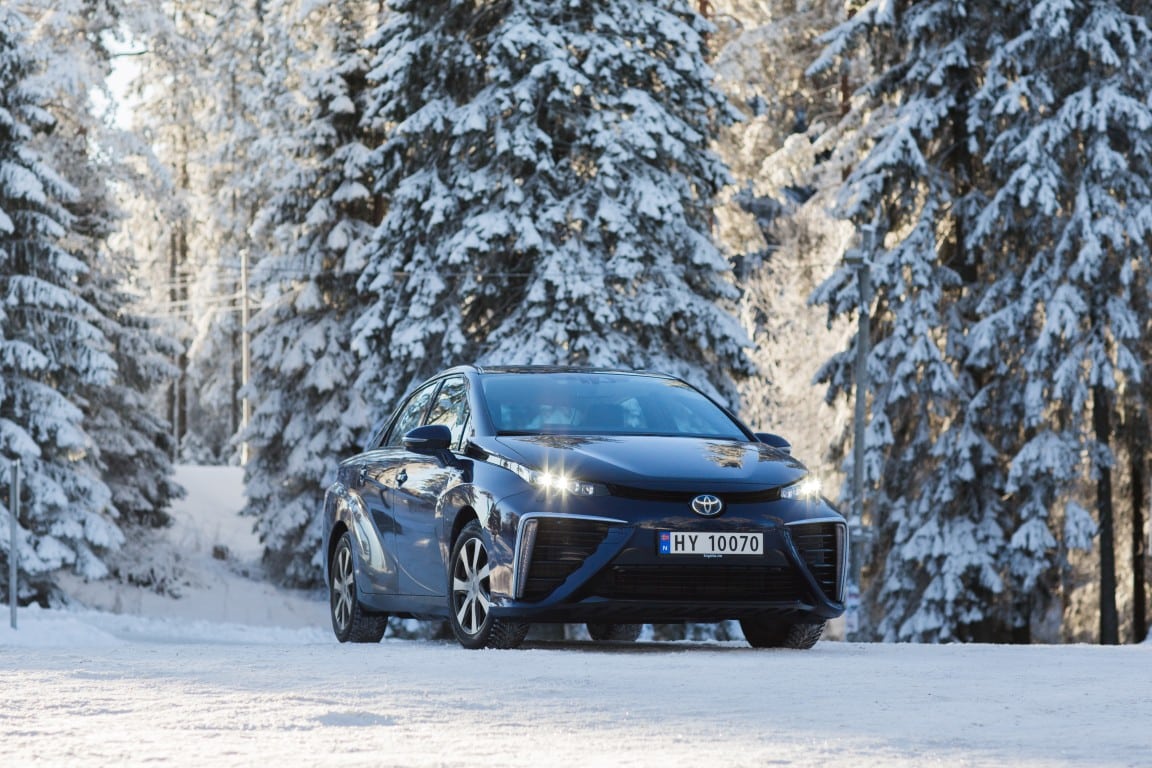Toyota Still Committed to Making Hydrogen Fuel Cell Vehicles Affordable
As the electric car industry continues to ramp up, the dream of a hydrogen fuel cell future seems farfetched. But Toyota is doubling down on its investment in hydrogen fuel cell vehicles, believing that the low adoption rate has primarily to do with cost.
Speaking to Reuters, Mirai chief engineer Yoshikazu Tanaka said Toyota believes it can popularize FCVs by making them cheaper, and the company is going full steam ahead in trying to accomplish it.
“We’re going to shift from limited production to mass production, reduce the amount of expensive materials like platinum used in FCV components, and make the system more compact and powerful,” he explained.
Around 2025, Toyota intends to introduce other hydrogen fuel cell vehicles than the Mirai, including several SUVs, pickup trucks, and commercial trucks. Even as the industry focuses on electric cars, Toyota is convinced hydrogen is the real solution to clean automotive energy in the long term. It’s the most abundant element in the universe and can store more energy than a battery of comparable weight.
Related: 2018 Toyota Camry has one of the industry’s best interiors
The current Mirai FCV has a driving range of just over 300 miles, and the company hopes to improve that to about 450 miles and then 620 miles by 2025. Mass production will be key for reducing cost, though being able to reduce the use of expensive material will also go a long way.
“We’re going to use as many parts from existing passenger cars and other models as possible in fuel cell trucks,” said Ikuo Ota, manager of new business planning for Toyota’s fuel cell projects. “Otherwise, we won’t see the benefits of mass production.”
Toyota is already close to saving a hundreds of dollars per fuel cell stack by using less platinum without losing performance. “By consistently focusing on these issues, we will be able to progressively lower the cost of FCVs in the future.”
On paper, an FCV that costs the same as an electric car should be the winner. The Mirai has an exceptionally good range, emits nothing but water vapor, and can be refueled in just five minutes. However, the hydrogen refueling infrastructure is still far behind that of the growing charging network for electric cars…but that’s also something Toyota is working on.
Related: Discover the full 2018 Toyota lineup
News Source: Reuters

The News Wheel is a digital auto magazine providing readers with a fresh perspective on the latest car news. We’re located in the heart of America (Dayton, Ohio) and our goal is to deliver an entertaining and informative perspective on what’s trending in the automotive world. See more articles from The News Wheel.


